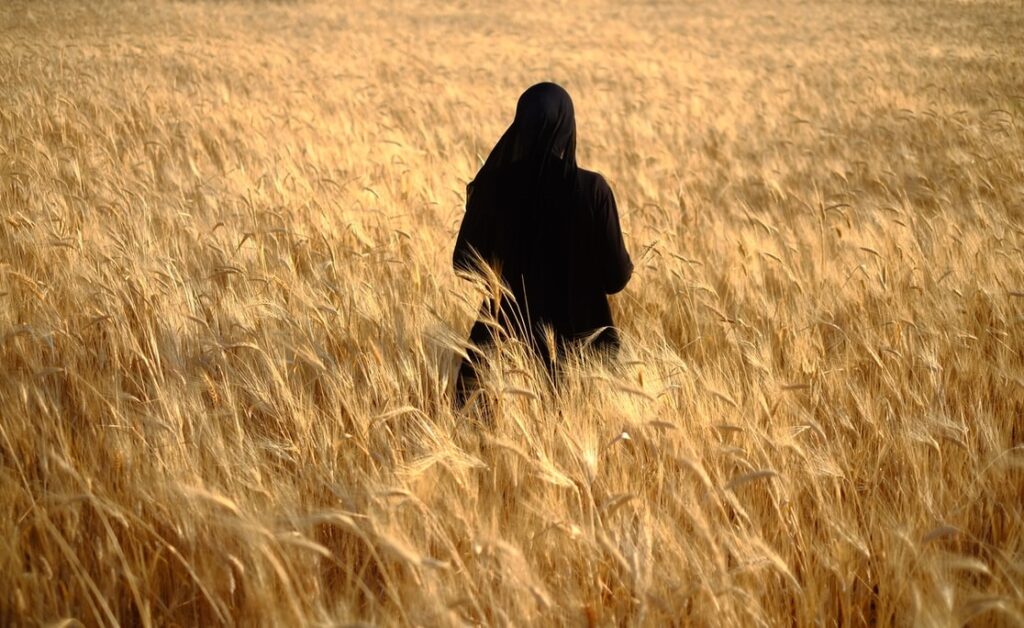“In whom we have redemption through His blood, the forgiveness of sins.” (Colossians 1:14, NKJV)
Everyone likes a good love story, and that’s what we find in the Old Testament Book of Ruth. It’s familiar to most of us, yet worth studying again. It’s only four chapters long and easily read at one sitting.
Our story begins in Bethlehem, a small town just outside Jerusalem. Because of famine, an Israelite named Elimelech decides to take his wife, Naomi, and their two sons to Moab where things seemed better. Within a few years hopes for that better life grew dim and then extinguished as first Elimelech and then his two sons died. Both sons had married Moabite wives, so now the family consists of three widows. Learning conditions had improved at home, Naomi determines to return to Bethlehem. One daughter-in-law, Ruth, insists on accompanying her, but the other returns to her own people.
Accepted
A small town, Bethlehem was one of those places where everyone knew everyone (and everything). Not surprisingly even after ten years, town folks recognized Naomi and welcomed her home. Although Ruth was a foreigner from a pagan culture, they also accepted her and recognized her loving care of Naomi.
Widowhood is never easy, but especially for two women alone with limited options. We can feel Naomi’s despair as she told the townspeople, “Do not call me Naomi [delight]; call me Mara [bitter], for the Almighty has dealt very bitterly with me . . . I went away full, and the LORD has brought me back empty” (Ruth 1:20-21, ESV).
Loved and Redeemed
Now for the love story I promised.
The two arrived in Bethlehem during the spring barley harvest. The poor were allowed to follow behind the harvesters and pick up any missed or dropped grain for their own use, so Ruth went into the fields to glean for food. This was their system of welfare.
While gleaning Ruth encountered Boaz, the wealthy owner of the field. He had heard her story and was impressed by her willingness to forsake everything familiar for Naomi’s sake. He also knew she trusted in Naomi’s God. Boaz kindly instructed Ruth to eat with his workers and stay near them during the harvest. He privately instructed the workers to let her glean among the sheaves and even drop some handfuls of grain on purpose. Ruth remained with his reapers through both the barley and wheat harvests.
The love story is developing!
Naomi knew Boaz was a near kinsman and as such could redeem the property of her deceased husband and sons. She instructed Ruth on how to approach Boaz about this at the end of the harvest celebration. (Read Ruth 3.) There Ruth reminded Boaz he was a near kinsman and asked him to spread his skirt (mantle) over her. In that culture it meant she was seeking his protection by marriage and asking him to redeem the family’s property. He willingly agreed and settled the legal requirements the next day. Throughout the story we see the kindness, respect, and yes love, that Boaz felt for the young Moabite widow. This virtuous woman became the great grandmother of King David and was in the direct lineage of Jesus Christ.
Another Bethlehem Love Story
Centuries later, another love story began in Bethlehem — one even more beautiful than the story of Ruth and Boaz. This love story is yours and mine. A tiny baby born in a Bethlehem stable one long-ago starry night became our kinsman redeemer. We were poor and in desperate need of help, but He offered to bring us under the protection of His mantle and save us from our sins. Our Redeemer offers us a new life of blessing and promise. The redemption price was great – His life – but He willingly gave it so we could be saved. We are also loved and redeemed.
“Who gave Himself for us, that He might redeem us from every lawless deed and purify for Himself His own special people, zealous for good works” (Titus 2:14, NKJV).
Thank You, Lord, that You willingly paid the price to redeem me and save me from my sins. You have covered me with Your protection and shown abundant mercy toward me. My Redeemer loves me!




Comments are closed.